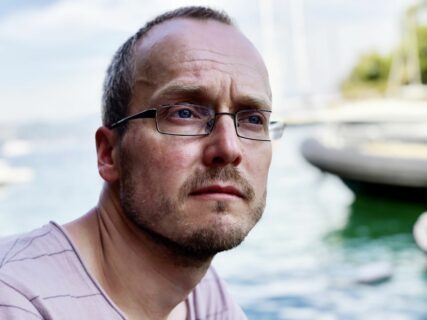ERC Starting Grant for glacier research
Dr. Johannes Fürst receives €1.5 million funding from the European Research Council
Dr. Johannes Fürst has succeeded in securing research funding in one of the toughest European selection processes. Over the next five years, the European Research Council (ERC) will provide him with an ERC Starting Grant of 1.5 million euros to support his outstanding glacier research. Less than ten percent of the submitted projects make it through the strict selection process. The ERC awards its funding annually to research projects with particularly high innovation potential.
Project summary: FRAGILE. Next generation framework for global glacier forecasting
Our glaciers are melting – and will continue to do so if there is no drastic intervention to tackle climate change. This is a fact that is widely known and accepted. But how can the retreat and melting of all glaciers worldwide be reliably predicted for the coming decades?
Until now, researchers have mainly used modelling approaches based on simple glacier models: usually, the glacier geometries have been greatly simplified to single flowlines or based entirely on volume and area data. Models to date have also largely disregarded flow behaviour. The ice thickness of today’s 200,000 glaciers is only very roughly known: and this has also been a major factor of uncertainty in previous forecasts.
Dr. Johannes Fürst wants to significantly improve these forecasts and he is currently working on forecasting models for the development of glaciers worldwide in the project FRAGILE. He intends to use systematic modelling techniques to exploit vast quantities of satellite data, which have not been widely used to date, including satellite images from the past 20 to 30 years. The vast data available now includes fortnightly coverage of each glacier on our planet, including measurements of its current speed and surface. This information will be incorporated gradually and systematically into the new forecasting model, which is a similar idea to weather forecasting. The system is optimised gradually by comparing the performance of the model with real-world conditions, helping to produce the most accurate forecasts possible.
Apart from this targeted use of data, Fürst wants to avoid any simplification of the glacier geometries: Instead, glaciers should be recorded in their entirety as three-dimensional bodies in glacial valleys and changes in their flow behaviour should be taken into account.
One of his first acquisitions from the Starting Grant funding was a storage server with a capacity of 400 terabytes for the enormous amounts of data that are processed in his model.
Profile
Johannes Fürst was born in Neuburg an der Donau in Bavaria. After completing his Master’s degree in physics at the University of Potsdam in 2009, he moved to neighbouring Belgium, where he received his doctorate in 2013 from the Vrije Universiteit Brussel on the effects of climate change on Greenland ice. He then worked as a postdoctoral researcher at the Laboratoire de Glaciologie et Géophysique de l ‘Environnement in Saint Martin d ‘Hères, a suburb of Grenoble, France, until 2015. In 2015 he returned to Germany and accepted a postdoctoral position at the Institute of Geography at Friedrich-Alexander-Universität Erlangen-Nürnberg. Since 2018 he has been a Research Associate at the Institute of Geography at FAU.
Contact
Dr. Johannes Fürst
johannes.fuerst@fau.de
